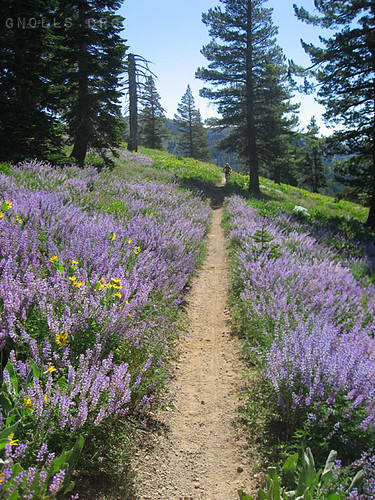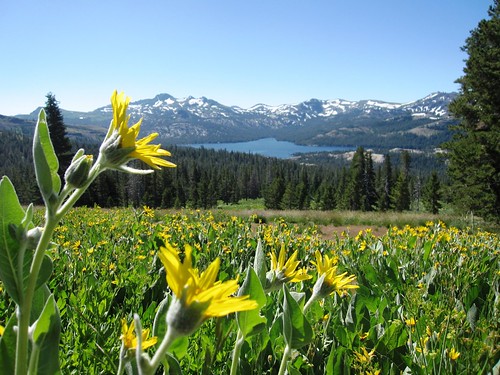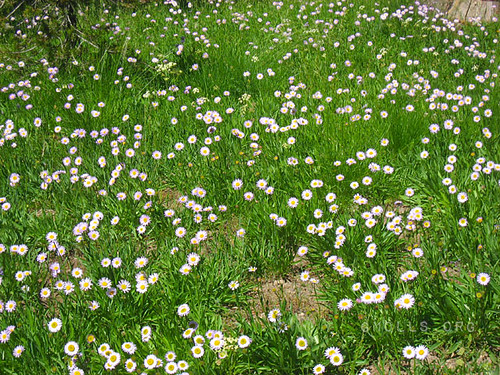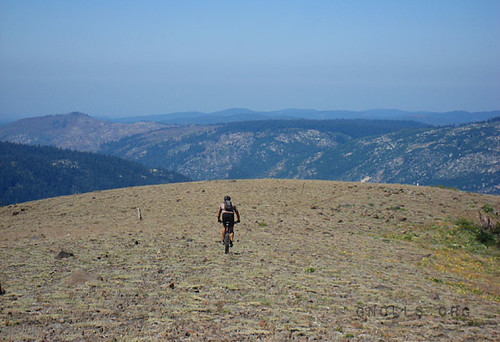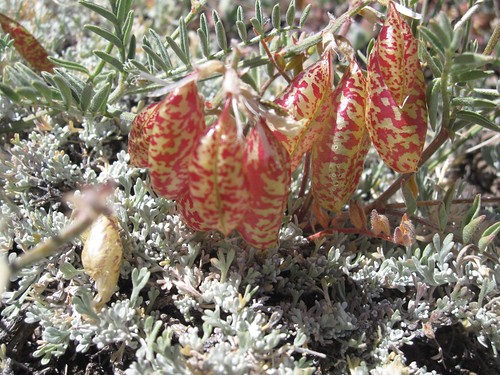While city dwellers were rioting in the UK, the wildflowers were rioting in the Sierras. Though it arrived in late August, over a month late, we had a truly astounding wildflower season this summer.
Wildflower Riot!
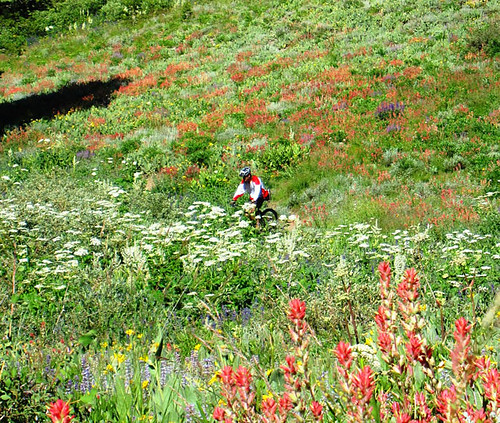
In the High Sierra, there's not much summer in which to bloom...and what with the late snows, everything went off all at once.
Yes, mountain bikers stop to smell, photograph, and otherwise appreciate the flowers. Riding allows people with families to support, and who don’t have time for multi-day backpacking trips, to see backcountry they could never see otherwise…and there are a lot of people with bad knees who simply can’t hike long distances anymore, especially with a heavy pack. Someday you’ll probably be one of them.
Please consider that the next time you’re advocating for wilderness designation, which singles out bicycles for removal while permitting boats, ski touring gear, climbing gear, and commercial horsepacking operations…and often grandfathers in everything from airstrips to snowmobiles to jet skis to operating mines. (Here’s a startling list of wilderness ‘exceptions’.)
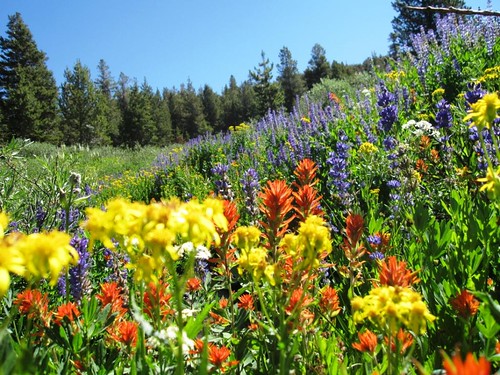
If I were a bee, this would be heaven. It was impossible to be more than eight inches from a flower.
(Some photos were taken by my friend Jeff.)
A Few Observations About The State Of The Paleo Community
- The first problem with already knowing everything is that we can’t learn anything.
- The second problem is that if new information finally sneaks around or smashes through our protective shield of omniscience, it’s difficult to explain why today’s definitive, prescriptive advice differs so radically from last year’s—and, more importantly, why this year’s won’t differ radically from next year’s.
- Phrases such as “I don’t know” and “That’s interesting, tell me more,” do not diminish my stature or reputation.
- If you wonder whether this applies to you, it probably doesn’t…and those of us who need to hear it the most won’t think it could ever possibly apply.
- Not knowing everything doesn’t mean we throw up our hands and say “Whatever makes you feel good, man.” We know quite a bit about nutrient (and anti-nutrient) content of foods, and about how they’re metabolized. Just because some people can tolerate suboptimal nutrition doesn’t mean anyone should.
- In my opinion, the best argument for keeping starch consumption to the lowest level that allows you to maintain your health and level of physical activity is that concentrated starch and sugar sources are nutrient-poor (or, in the case of most grains, actively disruptive) compared to animal foods. If you want me to eat lots more starch calories, “well, it won’t kill you, IF your glucose regulation is good” isn’t a sufficient argument to displace nutrient-rich animal foods like egg yolks from my diet.
- This is doubly important for people trying to lose weight: we might be ingesting fewer calories, but that doesn’t mean we need any less choline, B vitamins, magnesium, or anything else.
- That being said, I eat a substantial quantity of starch—because I’m regularly out there burning glycogen on a bicycle, on skis, or on foot. Up to perhaps 20% of calories is fine for the metabolically functional…beyond that, we’ve got to EARN those potatoes.
- It’s easy to put up a wall of citations—but if a hypothesis contradicts observed reality, it’s best to take a step back. People didn’t suddenly become lazy and gluttonous starting in 1978, and food didn’t suddenly become tasty in 1978 either. (Graph here.) And while I’m fond of pointing out that the US government first tried to change our diet in 1977, I don’t believe that we became obese purely at our government’s command.
- A final concept for our evaluation and discussion: a “set point” is just a homeostasis we don’t understand yet. Thoughts?
Most importantly, I believe the paleo community is stronger for these controversies. Natural selection means that some animals survive and some die—and so it is online, in the world of ideas. The survivors will be those who are willing to do the careful, patient, unglamorous work of reading the scientific literature, summarizing and communicating it in an understandable way, and producing both testable hypotheses and practical advice from it. And while there is much solid work being done, I must give special mention to Paul Jaminet at Perfect Health Diet for his recent work tying together thyroid, diet, and LDL (make sure to follow the links within), and to Peter Dobromylskyj at Hyperlipid (and his commenters, particularly Stan the Heretic) for his recent work on mitochondrial dysfunction. This sort of collaborative investigation is what the Internet is for…
…and it can only be performed by those of us who don’t already know all the answers.
Live in freedom, live in beauty.
JS
